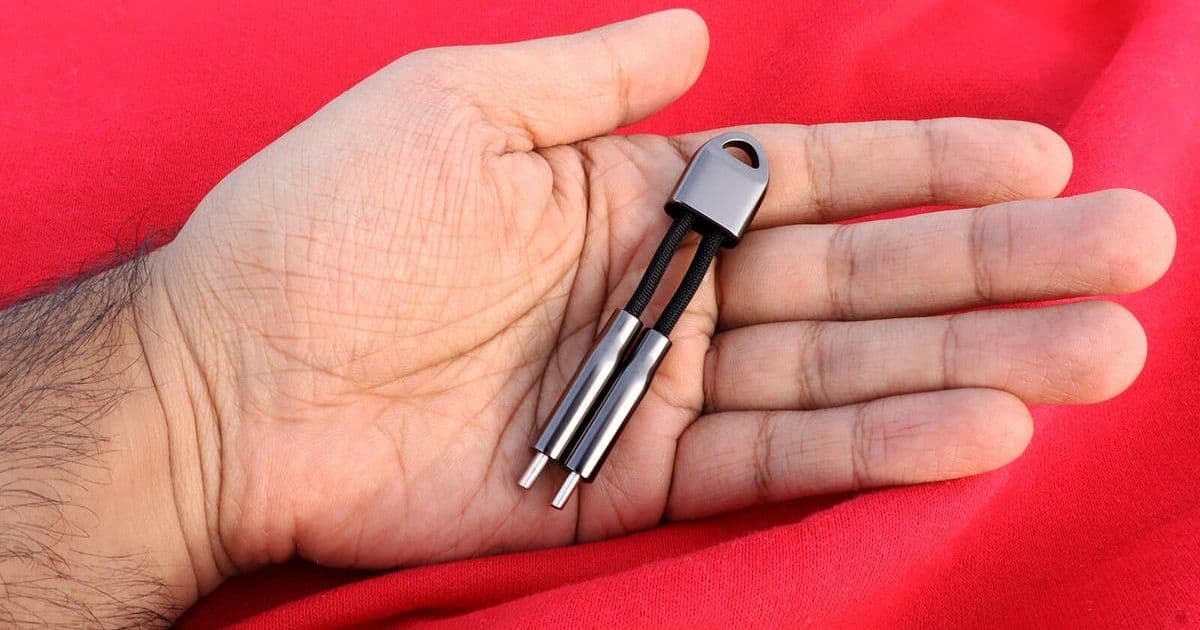Nomad's latest ChargeKey V2 is a game-changer for travelers and daily commuters, offering 240W charging and 10Gbps data transfer in a durable, keychain-sized package. This $30 accessory combines portability with robust performance, making it an essential upgrade from tangled, fragile cables. Discover why it's the tech gadget you didn't know you needed.
Nomad ChargeKey V2: The Compact USB-C Cable Revolutionizing Everyday Carry for Tech Enthusiasts
In the fast-paced world of mobile tech, where developers and engineers are constantly on the move, the humble USB-C cable often gets overlooked as a mere necessity. But what if a cable could be more than just functional—durable, compact, and capable of handling high-speed charging and data transfer without the hassle of tangles? Enter Nomad's ChargeKey V2, a $30 keychain accessory that's proving to be an indispensable tool for tech professionals who value efficiency and reliability on the go.
 )
)
Built for the Road: Durability Meets Portability
As someone who's spent years reviewing gadgets for outlets like ZDNET, I've seen my share of USB-C cables that promise the world but fall apart after a few uses. The ChargeKey V2 changes that narrative with its electroplated zinc housing and braided nylon cable, designed to withstand the rigors of travel and daily commutes. This isn't just a cable; it's a keychain-ready accessory that clips onto your backpack or keys, ensuring it's always within reach without adding bulk.
The design improvements in this second-generation model are subtle yet impactful. The housing is slightly more polished, and the loop for key rings provides ample space for secure attachment. For developers juggling laptops, smartphones, and peripherals during code sprints or client meetings, this means less time fumbling with drawers full of frayed wires and more time focusing on what matters—your work.
Power and Speed: Performance That Delivers
At its core, the ChargeKey V2 supports up to 240W charging, making it suitable for powering laptops, smartphones, and even power banks. In hands-on tests, it recharged a Moto G Power from 0% to 50% in about 50 minutes and fully in under two hours, matching the performance of standard cables but with superior build quality. When connected to a laptop, it delivered around 40% charge in two hours, limited only by the power source.
But the real standout is its 10Gbps data transfer capability. Transferring 150 images from a smartphone to a laptop took just 40 seconds, while a 10GB folder moved in about five and a half minutes. For engineers working with large datasets or version control systems, this speed can shave precious minutes off workflows, especially when syncing code repositories or debugging on the fly.
 )
)
Compared to generic cables from big-box retailers, the ChargeKey V2 isn't revolutionary in raw speed—it's on par—but its longevity is the key differentiator. Those cheap alternatives often fail under stress, leading to data corruption risks or interrupted charges during critical tasks. Nomad's engineering ensures this cable endures twists, pulls, and environmental exposure, potentially saving developers from costly replacements and downtime.
Why It Matters for Tech Pros
In an era where remote work and hybrid setups are the norm, accessories like the ChargeKey V2 address real pain points. Imagine boarding a flight with your laptop at 20% battery, only to plug in and realize your cable is knotted beyond use. Or transferring build artifacts between devices during a hackathon, only for a subpar cable to bottleneck your process. This accessory mitigates those frustrations, blending seamlessly into an EDC (everyday carry) kit alongside multitools and power banks.
Priced at $29 (with a limited-time 10% bundle discount), it's an affordable investment for anyone in software development, cybersecurity, or cloud engineering who relies on portable tech. While its short length might limit some desk setups, for travel and mobility, it's unmatched.
As USB-C becomes the universal standard, innovations like the ChargeKey V2 remind us that even the smallest components can evolve to meet the demands of a connected world. It's not just a cable—it's a reliable partner in your tech journey, ensuring you're always charged and connected, no matter where your next project takes you.
Source: This article is based on the ZDNET review by Cesar Cadenas, published on November 14, 2025.

Comments
Please log in or register to join the discussion